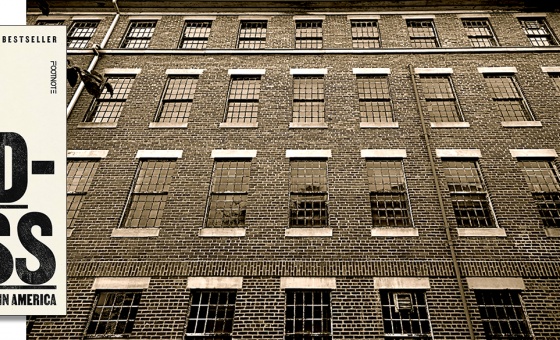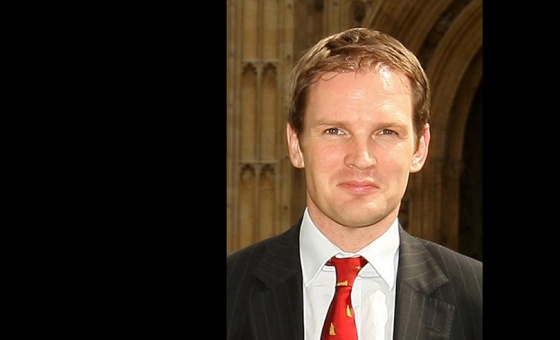This is the last article you can read this month
You can read more article this month
You can read more articles this month
Sorry your limit is up for this month
Reset on:
Please help support the Morning Star by subscribing here
“My friends, I am not a communist” (Boris Johnson, 30 June 2020).
OUR last two answers argued that within capitalism money is much more than merely a facilitator of exchange.
Today, most money exists in digital form as credit and debt, created by central and private banks, disembodied from any physical manifestation, protected by the state and central to financialised capitalism where profits are increasingly disconnected from production of goods and services.
An understanding of the nature and function of money is a challenge to the government’s “good housekeeping” rhetoric and to Tina (“there is no alternative”) austerity.
It is also a challenge to Labour’s insistence on the need to borrow to secure the “growth” that will allow its (now increasingly unclear) policy proposals to be implemented.
It demonstrates that Britain was not about to “go bust” in 1976 when a Labour government went cap in hand to secure a loan from the International Monetary Fund, using only half of it but implementing the austerity demanded in full and paving the way for Margaret Thatcher’s 1979 Conservative victory.
Fifty years on as Labour again lurches to the right there are many reasons for Labour’s defeat in the 2019 elections.
But one of them — maybe one of the most significant — is that Labour’s ambitious manifesto proposals for major public expenditure — all, as Labour boasted at the time, “fully costed” — failed to convince the electorate.
Even now, with buffoon Johnson in charge and government “spending” way in excess of Labour’s costed proposals (much of it ending up as profit for speculators) a common response from working-class Tory voters beyond the “red wall” is “imagine the state we’d be in if Corbyn had been in charge.”
Imagine the response a Labour chancellor would get if they stood up in Parliament to deliver the sort of speech that Rishi Sunak gave in early July when he announced a £30 billion scheme to save jobs.
The announcement was marred only by the realisation that the relaxation on stamp duty would primarily benefit second home owners and landlords of new “buy-to-let” properties; by the announcement that hospital staff would once again be charged extortionate fees (primarily by outsourced companies) to park on hospital premises; of a TV licence fee for over-75s; and of a new £1,000 bonus for employers who bring workers back from furlough and retain them on their books until the end of January 2021 (a gift which had little effect on their plans either way).
Labour was reduced to its usual “too little, too late” rhetoric and to trying to ridicule the reduction in VAT on hospitality and tourism from 20 per cent to 5 per cent with the weak declaration: “We were promised a ‘New Deal,’ but what we got was a ‘Meal Deal’.”
One reason for this is the belief that that everything has to be “paid for” and paid for, for the most part, through taxation, direct (as in income tax) and indirect (as in VAT and other taxes).
That is true only to the extent that the state wants it to be true — it is, ultimately, an accounting exercise.
This doesn’t mean that taxation isn’t important — it is. Taxes are important to regulate patterns of consumption and production, to address inequalities (so-called “progressive taxation” — increasingly regressive in the last decades) and other reasons.
But taxation is not an inescapable prerequisite to fund state spending.
Labour’s search for fiscal credibility was based largely on the acceptance that, as Johnson’s predecessor Theresa May told a nurse who hadn’t had pay rise for eight years: “There’s no magic money tree.”
The need to control financial institutions — and to resist the dictates of international finance capital — is remarkably absent.
What Labour has failed to do — and what needs to be a focus of Marxists in the Tory years ahead — is to promote a new economic literacy, particularly in relation to public spending.
Sunak himself declares that the new measures — which had they been proposed by a Labour government in power would have been called reckless Marxism — are necessary, but then adds an afterword that “they will need to be paid for,” protecting the dogma of monetary policy in order to prepare voters for the “inevitability” of hard times to come.
The reality is that under Conservative rule, the state’s monetary policy is likely, under the direction of international financial institutions to shift again in due course and the corresponding fiscal (tax and spending) policies will include a return (despite Johnson’s glib assurances) to “austerity.”
Exploitation exists in all class societies. Within slavery and under feudalism, the nature of exploitation is clear and explicit. But under capitalism, it is hidden and money is central to this.
In Robert Tressell’s The Ragged Trousered Philanthropists (1914) Frank Owen, the socialist central character, tries to explain capitalist exploitation to his workmates through a demonstration of “The Great Money Trick” using pieces of bread for the products of their labour and knives as the “machinery of production.”
He concludes: “Money is the principal cause of poverty.”
That’s not strictly true, of course: capitalism is the principal cause of poverty.
And money today is rather different from what it was then and in Marx’s day, a half century before that.
It’s likely that even in a truly socialist society, “money” (as coinage and digital credit) would continue to exist. But it could not function as a commodity — as capital.
It would not be used to realise profit from the surplus value extracted from workers.
And it would not be — as it is today — a means of disciplining ”the many” through the need to work to pay the bills and at the same time persuading us that we “belong” because we can afford the occasional holiday or luxury purchase.
So — in the difficult times ahead, what should labour (the working class and trade union movement, as well as the Labour Party) do about money?
Part of the answer must be the development of theory and practice.
Abandon the rhetoric of “good housekeeping.” Johnson and Sunak already have — the former even having to declare as a consequence “I am not a communist.”
Recognise that the only source of new value is human labour.
Posters throughout Britain in July and August urging Britain to “get back to work” when the first wave of coronavirus had subsided acknowledge that fact, but they do it in the interests of capital, not of labour.
Labour (little “l”) needs to promulgate a superior form of economic literacy rooted in political economy — the recognition that money management by a capitalist state acts in the interests of the capital class.
And that there is an alternative to “borrowing” even within the existing monetary system.
One modern communist manifesto, Britain’s Road to Socialism, provides a list of ways in which an ambitious left programme of economic, social and cultural policies could be funded including taxes on wealth, unearned income and “dead” (especially landed) capital and on financial transactions, ending outsourcing and other subsidies to big corporations and redirecting spending on nuclear weapons to socially useful production.
Others on the left, including recent articles in this paper, argue that the state’s control over the money supply would allow it to fund such expenditure directly, with the inflationary dangers removed through using the spending power of government to maintain economic activity at full capacity rather than paying people to do nothing at home.
Either way, it is clear that capital will fight back. The experiences of Greece (part of the eurozone, and which accepted the “structural adjustment” loan conditions of the banks) and of Venezuela (whose “sovereign” currency has been systematically undermined by the US and its puppets including the Bank of England’s illegal retention of its gold reserves) are a warning.
One of the biggest challenges to any future left Labour administration in post-Brexit, post-Covid Britain will be to confront the domination of Britain’s economy by the City of London and by international finance capital that it represents.
This autumn sees the launch of two online courses from the Marx Memorial Library and Workers’ School, on an Introduction to Marxism — an overview of Marxist approaches to history, economics, philosophy, the environment, and revolution — and on Historical Materialism. Details, together with downloadable copies of previous Full Marx answers (this is number 72) can be found on the library’s website www.marx-memorial-library.org.uk.










